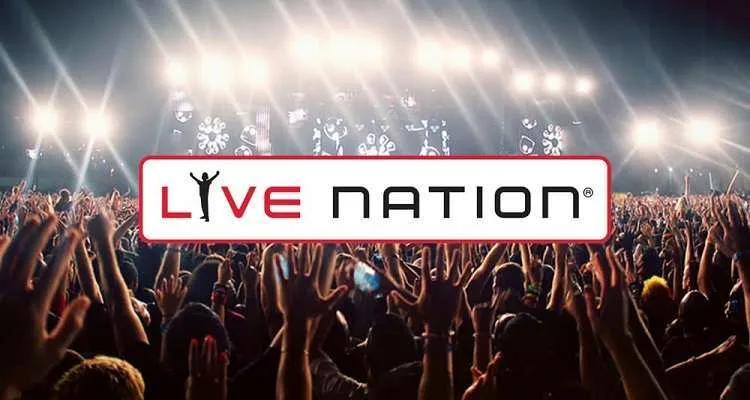Live Nation and Ticketmaster Face Class-Action Antitrust Lawsuit Over ‘Blatant, Anti-Consumer Behavior’


Live Nation and its Ticketmaster subsidiary are officially facing a class-action antitrust lawsuit over their alleged “blatant, anti-consumer behavior,” specifically concerning alleged violations of their consent decree, efforts to “monopolize the primary ticketing services market” via exclusive deals with “the vast majority of major concert venues,” and more.
Four individuals (residing in Florida, California, and Ohio) who purchased primary and/or secondary tickets from Ticketmaster just recently submitted the all-encompassing complaint to a California federal court.
Spanning a staggering 76 pages, the comprehensive action begins by noting that the filing parties’ counsel in April of 2020 brought a different class-action suit against Live Nation, also over the Beverly Hills-based entity’s alleged monopolistic business practices. While the defendants have long “compelled consumer claims against them to arbitration” – including in the April of 2020 case – they “drastically altered” their arbitration agreement in July of 2021, according to the newest complaint.
In brief, this updated arbitration agreement “designates New Era ADR as the dispute resolution forum.” Consequently, “even if consumers prevail under the New Era agreement, and even if the consumers have a statutory right to attorneys’ fees and costs, the New Era agreement strips that right away, leaving it up to the unfairly chosen decisionmaker’s discretion to award those fees and costs ‘as necessary,’” the text elaborates.
Notwithstanding this new system, which allegedly “skews the odds” in Live Nation’s favor, “the core of the dispute has not changed since” the April of 2020 suit, with the latest plaintiffs seeking “to recover the damages they suffered from paying supracompetitive fees on primary and secondary ticket purchases from Ticketmaster’s online platforms,” the text indicates.
And on this front, the multifaceted lawsuit dives into the logistical nuances of Live Nation’s business model, claiming off the bat: “Subsidized by the supracompetitive profits Ticketmaster’s business generates from its domination of primary ticketing services for major concert venues, Live Nation Entertainment is able to keep a stranglehold on concert promotion services—losing tens of millions of dollars annually—by paying its clients exorbitant amounts.
“Using its promotion business as a loss leader in turn helps maintain Ticketmaster’s dominance, because venue operators must take into account the very real possibility that Live Nation Entertainment will not route tours through their venues if they do not select Ticketmaster as their primary ticketing service provider.
“The primary source of, and barrier surrounding, Ticketmaster’s market dominance is a nationwide web of long-term, exclusive dealing contracts with the vast majority of major concert venues throughout the United States.”
The cost-related effects of the “pervasive and insidious” practice, the plaintiffs proceed, ultimately reach fans, who “have long decried the extraordinarily high fees Ticketmaster imposes on the tickets it sells, a practice consumers cannot avoid because of Ticketmaster’s ubiquity and impregnable market power.”
Despite these alleged negative effects on consumers, Live Nation and Ticketmaster “have continued to flourish by engaging in anticompetitive exclusive dealing with major concert venue operators” as well as executing “numerous other unfair and anticompetitive acts,” the action states.
The latter acts include improperly utilizing Ticketmaster’s “conditional copyright license…as an anticompetitive weapon against all users on the site,” in part by limiting primary ticketholders’ transfer and sale options and by “using the license as a bludgeon to force secondary ticket brokers into agreeing to exclusively use Ticketmaster’s secondary ticketing platform,” the plaintiffs maintain.
Said conditional license, the lawsuit elaborates, is a purportedly “pro-consumer” tool that “allows users to view Ticketmaster’s site and access its contents only if they agree to a bevy of restrictions that prevent brokers from purchasing tickets from Ticketmaster and then reselling them on rival secondary ticketing platforms.
“Ticketmaster’s conditional license plays into this scheme by acting as the sword Ticketmaster wields against ticket brokers if they do not agree to its anticompetitive demands,” the document continues. “Put simply, Ticketmaster will allocate primary tickets for a broker to a ticket bank if that broker agrees it will resell its tickets through Ticketmaster’s secondary ticket platform.”
Next, after returning to the initially mentioned idea that Live Nation “shamelessly violated” a Department of Justice consent decree (which will now run through 2025), the no-holds-barred lawsuit takes aim at the company’s CEO, Michael Rapino.
“Armed as he is with this power over artists’ careers” – referring to the substantial portion of artist income that derives from live shows – “and fueled by Ticketmaster’s outsized profits, Mr. Rapino has used this position to intimidate the live music industry into using Ticketmaster for primary ticketing services and, more and more, secondary ticketing services.”
The information- and data-driven suit then highlights all manner of supporting details, reiterating once more that “substantially all of the nation’s major concert venues have entered into long-term exclusive agreements with primary ticketing service providers” and noting that most of the deals with Ticketmaster, usually running five to seven years, are renewed “because there is no effective competition to Ticketmaster when these long-term exclusive dealing contracts expire.”
Also included are comparisons of ticketing fees at gigs for which Ticketmaster was the sole ticketing provider (against non-Ticketmaster shows), a breakdown of the US ticket market versus that of the UK (“in which no one provider has extensive exclusive deals for primary ticketing services”), and an analysis of the defendants’ recent moves to establish a material presence in the secondary ticketing space.
Ultimately, “the result of Defendants’ efforts, working in concert with venues and ticket brokers, is the substantial lessening of competition in the relevant markets for primary and secondary ticketing services for major concert venues, injuring both competitors and consumers alike,” the lawsuit concludes.
Alleging multiple violations of the Sherman Antitrust Act, the plaintiffs are seeking undefined damages, attorneys’ fees, and more. Live Nation – which last year faced renewed calls for a congressional investigation – also remains embroiled in a courtroom confrontation with Coachella.
